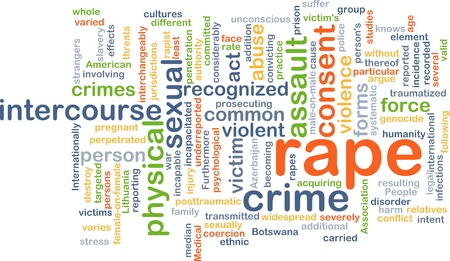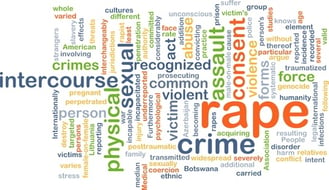
 Studies Support Putting More Emphasis on Title IX Obligations of High Schools and Middle Schools
Studies Support Putting More Emphasis on Title IX Obligations of High Schools and Middle Schools
Reflections by Harlan I. Ettinger, Esq.
A study published this week in the Journal of the American Medical Association Pediatrics challenges the conclusion stated in a famous 2002 study by David Lisak that a small number of serial rapists commit a majority of rapes on college campuses. As reported by The Huffington Post, "We're not saying there aren't serial rapists, we know there are serial rapists, but serial rapists are not responsible for the [campus rape] problem -- it's more complicated than that," said lead researcher Kevin Swartout, a Georgia State University psychology professor.
Swartout’s team conducted a longitudinal study in which they administered a Sexual Experience Survey to three groups of college men. The survey examined their sexual behaviors over a period of 15 years. The published study reports that among the 1645 participants 177, or 10.8%, reported having perpetrated at least 1 rape (meeting the FBI definition for crime reporting) from 14 years of age through the end of college. The study also reports that of the 84 men who reported committing rape before college, 50 (59.5%) did not perpetrate any rapes during college. Conversely, 92 of the 127 men (72.4%) who reported committing rape during college did not do so before college.
What does this mean? Swartout’s team concluded:
Although a small group of men perpetrated rape across multiple college years, they constituted a significant minority of those who committed college rape and did not compose the group at highest risk of perpetrating rape when entering college. Exclusive emphasis on serial predation to guide risk identification, judicial response, and rape-prevention programs is misguided. To deter college rape, prevention should be initiated before, and continue during, college. Child and adolescent health care professionals are well positioned to intervene during the early teenage years by informing parents about the early onset of nonconsensual sexual behavior.
The Huffington Post recently reported on another study, published this year online in the Journal of Adolescent Health, based on a 2010 survey of 480 female freshmen at a university in upstate New York. “Among those surveyed, 37 percent said they were either raped or attacked by someone who attempted to rape them at least once from age 14 through the end of their freshman year.”
Why do these two studies matter? Both findings show that sexual assault is a problem before college. An alarming number of high school, and likely middle school, students are being victimized. More emphasis needs to be placed on the Title IX Obligations of high schools and middle schools.
What should our schools be doing? Young people in middle school and high school need be educated about gender violence and about respecting personal autonomy in sexual relations before they perpetrate or are victims of sexual harassment or sexual violence, such as rape, sexual assault, sexual battery, and sexual coercion. There are many organizations with a presence on the internet that offer training and education about effective prevention programs. The New Jersey Coalition Against Sexual Assault (NJCASA) is one of them. The NJCASA website is http://njcasa.org/ .
All schools, elementary, secondary and post-secondary, have a legal obligation under Title IX (20 U.S.C. §1681 et seq.), a federal civil rights law, to prevent and effectively respond to incidents of sexual violence committed by or against their students. The United States Department of Education, which enforces Title IX, says:
- Every school must have and distribute a policy against sex discrimination.
- Every school must have a title ix coordinator.
- Every school must have and make known procedures for students to file complaints of sex discrimination.
Does your school comply? If you believe that a school district, college, or university is violating Federal law, you may contact the U.S. Department of Education, Office for Civil Rights, at 800-421-3481 or ocr@ed.gov. If you wish to fill out a complaint form online, you may do so at: http://www2.ed.gov/about/offices/list/ocr/complaintintro.html .
What if you or a student you know has been sexually assaulted? If someone is in immediate danger, call 911. Law enforcement agencies in New Jersey are mandated to make confidential advocates available to help victims of sexual violence understand their options and voice their choices about how to proceed. These confidential advocates are affiliated with survivor services organizations and rape crisis centers. They are not law enforcement officers.
Adolescent victims and their parents are naturally reticent to draw attention to themselves. But no one, especially an impressionable adolescent, should suffer in silence or go it alone. There are trained counselors and advocates available to help. Every county in New Jersey is served by a sexual assault services organization that provides “confidential, compassionate support.” Find a program in your New Jersey county on the website of NJCASA at http://njcasa.org/find-help/ or by calling NJCASA’s Statewide 24-hour Hotline at 800-601-7200.
If the incident involves a student, or takes place in a school setting, another option is to contact the school’s Title IX coordinator. Some New Jersey school districts combine the responsibilities of the Title IX coordinator with those of the Anti-Bullying coordinator required by the state’s Anti-Bullying Bill of Rights Act. The telephone numbers or email addresses of a district’s Anti-Bullying coordinator or HIB specialists may be easier to find. When you call, state clearly that you want the first communication to be confidential so that you can maintain control over what happens next. Even the most trusted and trustworthy teacher or administrator may be a “mandated reporter” who has a legal obligation to report an incident of sexual violence. Make sure the person you go to can maintain the confidentiality you desire.
What we know about sexual violence and how society responds to incidents of sexual violence is constantly evolving. You may wish to seek guidance from an attorney about the legal options available for obtaining help, accommodations at school, or redress and justice through the courts. You can do so with full confidence that you control to whom and when the attorney can disclose what you reveal. Attorneys are required by the Rules of Professional Conduct to maintain their clients’ confidences.
The journey from “victim” to “survivor” begins with the first step.
Harlan I. Ettinger, Esq.
If you, or someone you know is a victim of sexual assault or sexual harassment, please contact Simon Law Group at 800-709-1131 for your free and private consultation. You may visit us on the web at www.simonattorneys.com or email us at info@simonattorneys.com
Related Posts
Aggravated Sexual Assault Laws in NJ
Bill Cosby - Dr. Cliff Huxtable, Sexual Predator
Veterans Benefits: Setting the Record Straight
Benefits for All Discharged Veterans
By: Harlan Ettinger, Esq.
Website on Preventing Sexual Assault to Launch
USDOJ Announces New Website Addressing Sexual Assault, Domestic Violence, Dating Violence and...


